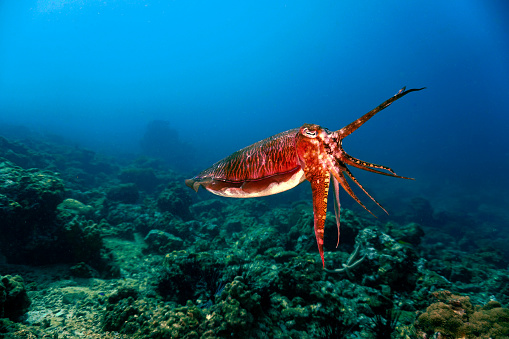Are you curious about the health benefits of squid? If so, then this blog is for you. In this blog, we’ll explore the nutritional value of squid and look at why it’s becoming increasingly popular as a healthy food choice. We’ll also discuss how to cook with squid in order to maximize its flavour and nutritional content. Finally, we’ll look at the potential risks associated with eating squid and how to minimize them. So, if you’re interested in learning more about this versatile seafood, read on!
The nutritious benefits of squid may surprise you. This seafood is an excellent source of protein and essential vitamins and minerals that are essential for maintaining a healthy diet. It also contains a variety of fatty acids, which can help reduce inflammation and improve heart health. Plus, squid is low in calories, making it a great choice for those trying to lose or maintain weight. Ultimately, by adding squid to your diet you can enjoy a tasty and nutritious meal that will provide numerous benefits.
Cooking with squid may seem intimidating at first, but it doesn’t have to be. There are many recipes available online that provide quick and easy methods for preparing squid. Additionally, there are plenty of ways to make squid the star of any meal. From baked dishes to grilled entrees, you can create a delicious and nutritious dish out of this versatile seafood.
Despite its many health benefits, there are some risks associated with eating squid. For instance, it is important to make sure the seafood you are consuming is fresh and properly cooked. Additionally, squid can contain mercury which may be harmful if consumed in large amounts. Fortunately, these risks can be minimized by consuming squid in moderation and following proper cooking techniques.
Are Squids Fish?
No, squids are not fish. Squids belong to a group of cephalopods, which also include octopuses and cuttlefish. All three of these groups are members of the Mollusca family, which is a separate classification from fish. Squids have characteristics that help them survive in the ocean environment, such as a streamlined body and fins used for swimming. Fish, on the other hand, have gills that they use to filter oxygen from the water. They also have scales covering their bodies and a backbone. Squids do not possess any of these features.
That being said, squids are still an important part of ocean life. They play a vital role in the marine food web, providing a source of nutrition for other animals such as whales and seals. Squids are also an important source of food for humans, with some species being used in dishes around the world.
In conclusion, squids are not fish but they are still an important part of our ocean environment. They provide food for other animals and humans, making them an important part of marine life. There are also speculations about whether is squid halal or haram, well, it can be both.
Where are squids found?
Squids can be found in most of the world’s oceans, from surface waters to depths of several thousand meters. They commonly inhabit temperate and tropical seas, but can also be found in cold water regions such as the Arctic Ocean. Squids thrive in coastal ocean habitats including beaches, coral reefs, estuaries and intertidal zones. They can also be found in open oceans, bays, and submarine canyons. Squids often congregate in large schools near the seafloor and show a preference for reefs, lagoons, seagrass beds, and other areas with abundant amounts of food. They can travel large distances in search of prey and typically feed on fish, molluscs, and crustaceans. Squids are also hunted by many predators including seals, sharks, other squids and dolphins.
Since their population is highly migratory and their habitat often varies drastically with seasonality, it is difficult to accurately determine just where squids can be found at any given time. However, they do tend to inhabit certain regions consistently, such as the Mediterranean Sea, Gulf of Mexico and Japan. Squids are also found in high concentrations off the coast of South Africa, Chile and New Zealand. With their wide range and preference for near-shore habitats, it is likely that squids can be found in virtually all parts of the world’s oceans.
It is important to note that due to their migratory nature, squids may not always be present in any given area even if they inhabit it generally. Therefore, while it is possible to make a broad statement about where squids are typically found, it is difficult to provide an exact location.
Overall, squids can be found in most oceans around the world, including temperate, tropical and cold waters. They typically inhabit near-shore habitats such as coral reefs, estuaries and intertidal zones and have been found in high concentrations off the coasts of South Africa, Chile and New Zealand. It is important to note, however, that their migratory nature makes it difficult to determine exactly where they are at any given time.
Conclusion
In conclusion, squid is an excellent source of nutrition and can be a great addition to any diet. It is versatile, tasty, and easy to cook with. Plus, it offers many health benefits associated with reducing inflammation and improving heart health. Just remember to always buy fresh seafood, cook properly, and consume in moderation in order to minimize any potential risks. If you’re interested in learning more about the nutritional benefits of squid, this blog is for you!

